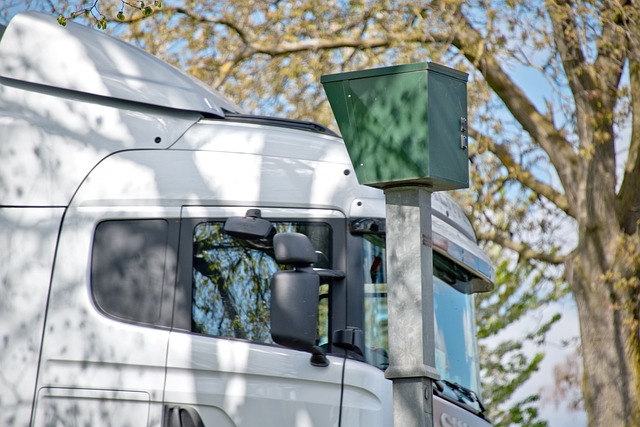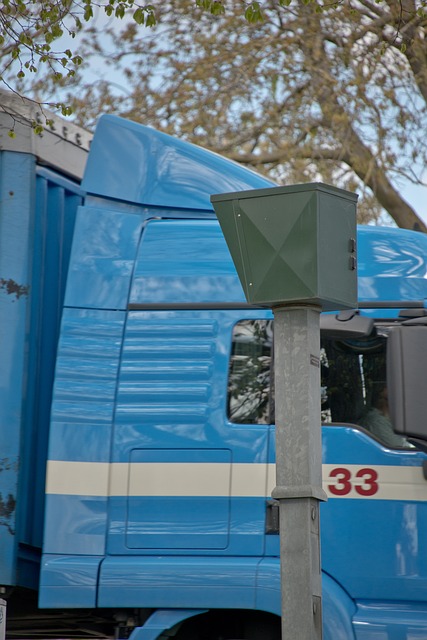Securing Top-Tier Protection for Leased & Owned Vehicles: Strategies for Top-Rated Trucking Insurance

Securing top-rated trucking insurance is crucial for protecting leased or owned vehicles in the truc…….
Introduction
Operating a small fleet comes with unique challenges, primarily due to the diverse needs of managing a few vehicles as opposed to larger fleets. The concept of ‘Best Coverage for Small Fleet Operators’ is crucial in navigating these complexities. This comprehensive article will delve into what constitutes the best coverage for small fleets, its significance, and how it can be optimized to ensure operational efficiency, compliance, and cost-effectiveness. Readers will gain insights into the various aspects that contribute to robust fleet coverage, from understanding the core components to exploring global trends and technological advancements.
Understanding Best Coverage for Small Fleet Operators
Best Coverage for Small Fleet Operators encompasses a comprehensive approach to insurance, maintenance, compliance, and operational management tailored specifically for small fleets. It is the amalgamation of various types of coverage that protect against liability, physical damage, and loss of income due to vehicle downtime. The historical context of this concept evolves from the broader landscape of fleet management practices, where traditionally larger enterprises dominated the discussion. However, as small fleet operators have grown in number and importance, so too has the need for tailored coverage solutions.
Global Impact and Trends
The impact of ‘Best Coverage for Small Fleet Operators’ is not confined to a single region but spans across continents. Global trends indicate a shift towards more customized insurance packages, reflecting the diverse operational needs of small fleets worldwide. In North America, for instance, the rise of e-commerce has led to an increase in delivery fleet operations, necessitating specialized coverage options. Conversely, in Europe and Asia, environmental regulations have spurred a trend towards electric and hybrid fleets, influencing the types of coverage required. These trends underscore the importance of staying abreast of regional differences and adapting coverage to meet local demands.
Economic Considerations
The economic aspects of ‘Best Coverage for Small Fleet Operators’ are multifaceted, influencing market dynamics and investment patterns. In terms of market dynamics, small fleet operators often face higher insurance premiums due to perceived risks. However, through strategic coverage options, they can mitigate these costs while ensuring business continuity. Investment patterns show a growing interest in technology-driven solutions that improve fleet efficiency, which indirectly affects the overall coverage needs. Additionally, ‘Best Coverage’ plays a pivotal role in economic systems by enabling small businesses to operate with confidence and security.
Technological Advancements
Technology has revolutionized fleet operations, offering advancements such as telematics, GPS tracking, and predictive maintenance. These innovations allow for real-time monitoring of vehicle performance, fuel consumption optimization, and predictive analytics to prevent downtime. The impact of these technologies on ‘Best Coverage for Small Fleet Operators’ is significant, as insurers are increasingly incorporating data-driven insights into their underwriting processes. Future potential includes the integration of autonomous vehicles and advanced AI systems, which will further transform the landscape of fleet coverage.
Policy and Regulation
The policy and regulatory framework governing ‘Best Coverage for Small Fleet Operators’ is intricate, with laws varying by jurisdiction. Federal and state regulations in the U.S., or provincial and federal guidelines in Canada, dictate minimum insurance requirements, safety standards, and operational practices. In the European Union, directives on vehicle emissions and driver hours contribute to the regulatory tapestry that small fleet operators must navigate. Understanding and adhering to these frameworks is essential for compliance and securing ‘Best Coverage.’
Challenges and Criticisms
Small fleet operators often face challenges such as high insurance costs, compliance complexities, and the need for tailored coverage options. Criticisms may arise from a lack of understanding regarding what constitutes ‘Best Coverage’ or how to integrate various types of insurance effectively. To address these issues, operators should seek comprehensive coverage that includes liability, physical damage, and contingency planning. Strategies such as driver training programs, vehicle maintenance schedules, and the adoption of telematics can also mitigate risks, leading to more favorable coverage terms and rates.
Case Studies
Several case studies illustrate the successful application of ‘Best Coverage for Small Fleet Operators.’ One such example is a delivery service that reduced its insurance costs by 20% through a combination of driver safety initiatives and the implementation of telematics. Another case involves a regional courier company that, by adopting electric vehicles and leveraging clean fleet incentives, not only reduced operational costs but also qualified for specialized insurance coverage with lower premiums. These lessons underscore the importance of proactive risk management and the alignment of fleet operations with available coverage options.
Future Prospects
The future outlook for ‘Best Coverage for Small Fleet Operators’ is promising, with potential growth areas in telematics, usage-based insurance, and alternative fuel vehicles. Emerging trends indicate a shift towards more personalized coverage packages that reflect the specific needs of small fleets. Strategic considerations must include adapting to environmental regulations, embracing technology for operational efficiency, and staying informed on evolving industry standards. As the landscape continues to change, small fleet operators must remain agile and informed to capitalize on new opportunities.
Conclusion
In conclusion, ‘Best Coverage for Small Fleet Operators’ is a multifaceted approach that encompasses insurance, technology, compliance, and strategic planning. It is a dynamic field that requires operators to stay informed on global trends, economic influences, and technological advancements. By understanding the intricacies of this coverage and how it impacts their operations, small fleet businesses can not only protect themselves against unforeseen events but also position themselves for sustainable growth and success in an ever-changing industry.

Securing top-rated trucking insurance is crucial for protecting leased or owned vehicles in the truc…….

In the demanding trucking industry, top-rated trucking insurance is vital for balancing affordabilit…….

Liability insurance is crucial for businesses, especially in the diverse trucking industry, offering…….

Small fleets face unique challenges that require tailored fleet policies rather than generic solutio…….

Businesses managing fleets can optimize operations with tailored fleet policies, which offer cost-ef…….

Multi-truck fleet operators face unique insurance challenges due to diverse vehicle types, high-risk…….

Securing robust protection for your leased or owned vehicles is paramount for business continuity. T…….

Trucking operations require top-rated trucking insurance for risk management, covering liability, ca…….

Advanced coverage features, including real-time tracking, automated alerts, and analytics, transform…….